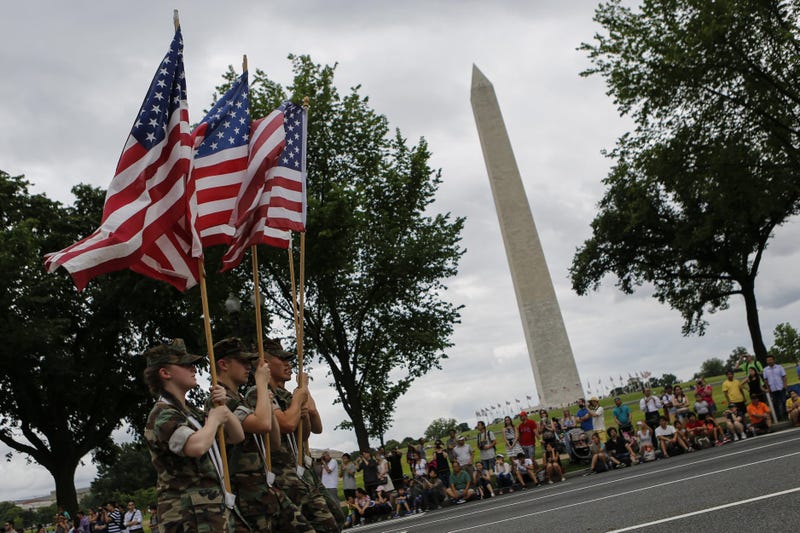
Young Marines isn’t just about teaching kids how to be leaders, the program focuses on instilling a healthy lifestyle for kids and teenagers, also.
Young Marines is a national youth program for both boys and girls ages eight through high school, which focuses on leadership, citizenship through community service, self-discipline, and living a healthy drug-free life.
The nonprofit began in 1959 when a group of World War II veterans in Waterbury, CT wanted to put a youth program together for young men in their neighborhood.
A few years later, the program was adopted by Marine Corps League and achieved its nonprofit status in the early 1980s. It had been co-ed since the prior decade, which was around the time when the first class of women were accepted to the National Service Academy’s.
The program that started with just one unit in Connecticut has now grown to 235 units with more than 7,500 youth involved and 2,500 adult volunteers (half being veterans) in 40 states, the District of Columbia, and Japan amongst other countries. Each location is its own unit.
Col. Bill Davis, executive director of Young Marines and a retired Marine colonel, said that last year the nonprofit had 238 units around the country. Currently, the program is 30% female and 70% male.
“This is a unique program because we focus on leadership using Marine modules, traits, and principles,” Davis said. “We focus our core values on leadership, teamwork, and self-discipline. If you talked to a young Marine in the military, they would say their values stem from family and friends and forming lifelong bonds.”
Davis said that the Young Marines organization has also seen that tradition and culture take place.
Becoming a Young Marine requires 26 hours of classroom and physical training. Once a Young Marine, the boys and girls are part of an enlisted rank and earn ribbons for activities and get promotions, such as becoming a Young Marine Private or Private Major.
Ribbons can be obtained for things like academic achievement, community service, and living a drug-free lifestyle.
Davis said the bulk of the units are not related to schools, although some are tied to schools and taught as an elective.
Normally, the program takes place on evenings and weekends all year round and has summer events that are geared to reflect the values of the program while also providing the Young Marines to get together for positive reinforcement.
“The skillset you learn through this program, from what I hear from parents, is that for kids who need guidance and discipline, they really learn that self-discipline and focus,” Davis said. “It’s because of the nature of the program. That self-discipline starts at the beginning when we do drill.”
For reserved and bashful kids, they learn how to be more outspoken and interactive.
“In drill, you have a chance to lead your unit and say ‘left, right, left, right’ and so you are learning to be a good leader and speak in front of people,” Davis said.
He said the point of the program is to set up the kids for success inside and outside of the military, and by being a part of Young Marines, they will stand out because of their skillsets.
“It’s really not that surprising seeing so many non-veteran volunteers because, at the end of the day, people want to help with youth development and have more engaging citizens,” Davis said. “This is a chance to help kids succeed in life and volunteers can have that impact. And if you’re lucky, these kids will one day come back to you and tell you that.”
Davis said that by joining the Young Marines, kids end up voting at twice the national average and participate in community service at twice the national average.
He said between 8% and 9% of volunteers are former Young Marines.
“It’s humbling to see former Young Marines come back to volunteer because they were so positively impacted by the nonprofit,” Davis said. “They want to give back and help other kids.”
Davis said interested volunteers can join an already established unit or begin their own if there isn’t a unit already established where they live.
There is training provided to learn to help run a program. In order to start a new unit, there need to be three adult volunteers. The nonprofit also require an application to be filled out, three letters of recommendation, and a background check.
“We want to continue to expand this nonprofit because we want to make a difference in as many kids’ life as possible,” Davis said. “The real takeaway here is that there is a strong demand for what our program offers and it’s an opportunity to create future leaders,” Davis said. “We are spring-loading them for success.”



